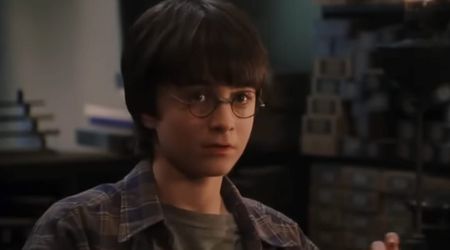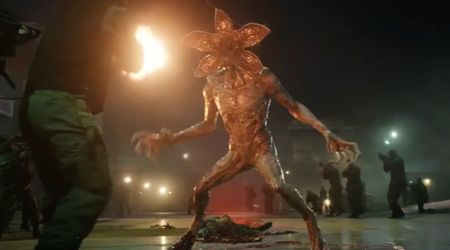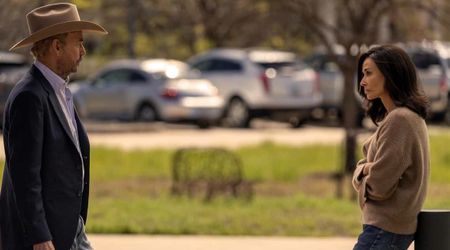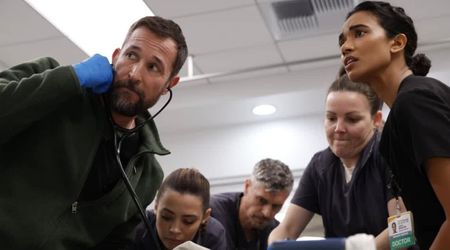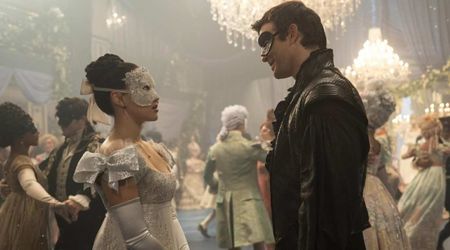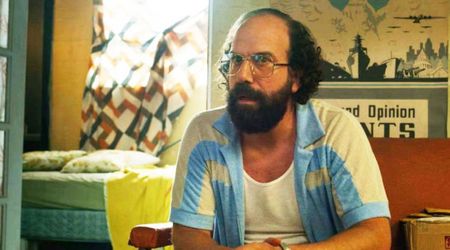HBO's 'Our Boys' episodes 1 and 2 review: History meets police procedural in premiere episodes

If you have ever had the misfortune of being in a city on the brink of violence after bombings or a shooting, some of the scenes in the first two episodes of 'Our Boys' might hit too close to home. Especially if, in that tense moment, you have the 'wrong' skin color, name, dress, language or mannerisms. To feel every eye on you as you shrink and try to disappear. When suspicion, fear, and mistrust meets an explosive triggering incident, all bets are off.
HBO's 'Our Boys', based on a researched script by Hagai Levi and Noah Stallman, brought in an Israeli and a Palestinian to write and direct individual episodes. Joseph Cedar, an Israeli, followed the Jewish threads of the narrative while Tawfik Abu Wael, a Palestinian, covered the Arab perspective.
The first two episodes deftly mix documentary footage with dramatized scenes. So the scenes - prayer vigils for three kidnapped Jewish boys, the soundbites of politicians and of the families, the boots on the ground for a massive search-and-find hunt that draws civilian volunteers, the casually uttered words of racism against Arabs - all read as viscerally real.
The knot in the pit of your stomach tightens as you watch the Israeli populace taking to the streets, clashing with the riot police as they protest. Shouts of "Death to the Arabs" and "Revenge" resound when the teens' bodies are found outside Hebron, their killings attributed to Hamas operatives. The grief-crazed Jewish civilians beating and throwing themselves at train doors are watched, in anxious silence from inside the train, by two Palestinian boys. They just want to get home without being killed. One of them is Mohammed, who will be abducted and murdered a day later, in a revenge killing.

In the heightened aftermath of the unusually cruel killings of innocents from either side, emotion and passions overruled calmer minds and led to the 50-day Gaza War. It was a war that left 2,200 people dead, mostly civilians. The Israel-Palestine conflict was never the same again. The ability of the creators to ground the viewer in what happened that summer in 2014 is the strongest element of the series so far. It drags you in, one shot at a time.
The obsessive devotion to verisimilitude, to dissect and examine the internal workings and circumstances of a history-defining hate crime, is behind creative choices. It yields mixed results. The series is shot entirely in Hebrew and Arabic, which adds an added anthropological rigor to the exercise but creates the gulf of language between the viewer and the complex subject matter. The other decision is to capture multiple, minute character interactions. The intent is to depict how culture, religion, prejudice, personal circumstances, and popular zeitgeist can mix and culminate in tragedy and war. But the aired episodes juggle so many characters and map so many complex socio-cultural exchanges that a viewer who is not from the region is lost, especially at the beginning.
The first episode is entirely devoted to the build-up of tension after the three Jewish boys go missing. As the prayer vigils grow more intense, and as hope blossoms anew each day that the boys will be found alive, the question is not about if things will go wrong but when things will go wrong. Simon (Shlomi Elkabetz), an investigator with Shin Bet, Israel's internal security agency, watches the rising fervor as the nation monitors the hunt for the boys. He asks the key question - what happens when hope is dashed and prayers go unanswered? He knows that with each passing day, the possibility of the boys being alive is fading. His co-worker chides him for being so emotionally disengaged from the situation. But his fears come true when the bodies of the teenagers are found and riots start in the streets of West Jerusalem.
The first episode also fleshes out the characters of Mohammed (Ram Masarweh), the Palestinian teen who will be burnt to death, and Avishai (Adam Gabay), an orthodox Misrahi Jewish teen who will participate in his murder. The writing closely draws out the similarities between the two characters - victim and perpetrator. Both are confused teenagers, stifled by their families, and boxed in by their respective cultural and religious environment. Both are impressionable and impulsive - characteristics that play out in very different ways as the story progresses.
At the end of episode 1, Mohammed vanishes from the front of his house. Episode 2 focusses on the rising panic of Mohammed's parents, Hussein (Jony Arbid) and Suha (Ruba Blal Asfour) when they realize their son has disappeared at a time when "Jews are out to get Arabs." Episode 2 brings more of the finely etched, minutely detailed dramatization, focusing on interactions and comments that are steeped in stereotypes and decades of mistrust.

It examines how, in situations of emotional upheaval that churn the depths of people, deeply embedded inner prejudices emerge uncensored. The acting of every character, minor and major, are uniformly nuanced and naturalistic. Asfour's performance stands out. She plays Suha so close to the bone that you forget you are watching a dramatized version of events. Arbid's acting chops are also on full display as he carries scene after scene, portraying a father's rising worry about his missing son as the minutes tick by, and later, his repression when he deals with the insensitive Israeli police officers who display a full range of racist and incompetent behavior.
When the police come to take Hussein to the station to follow up on his son's disappearance, his immediate community is already up in arms. They urge him not to trust the authorities. But Hussein, only concerned about his son's safety, goes anyway. None of the officer believes that Mohammed could have been harmed by "the settlers" (the Arabic term for Jewish families who have taken up residence in the land that was formerly occupied by Palestinians). Instead, they start questioning Hussein, pursuing the insulting premise that he himself had killed his son.
In the final moments of episode 2, Mohammed's body is found, burnt and beyond recognition, sparking conversations among the investigating officers (except Simon who suspects the perpetrators are Jews) about how the killing is probably another 'Arab' honor killing because Mohammed was gay. It was impossible that Jews had killed him because Jews did not "burn bodies." It is a sentiment echoed even earlier in episode 1, where TV footage of Benjamin Netanyahu plays, in which he declares: “a deep and wide moral abyss separates us from our enemies."
As the creators have explained, 'Our Boys' aim is to understand "Israeli aggression" as opposed to victimhood. Popular Jewish mythologizing of the events in the summer of 2014 refers to the three slain Jewish boys as "Our Boys." But the series title 'Our Boys' refers to the Jewish minors who participated in Mohammed's murder. They are also "Israel's boys" but they represent a side that Israel rarely acknowledges.
The series could have been a searingly universal and revelatory narrative about racism and hate crimes. But the docu-drama particularities overwhelm the universalities of the tale and will find American audiences struggling to relate.

